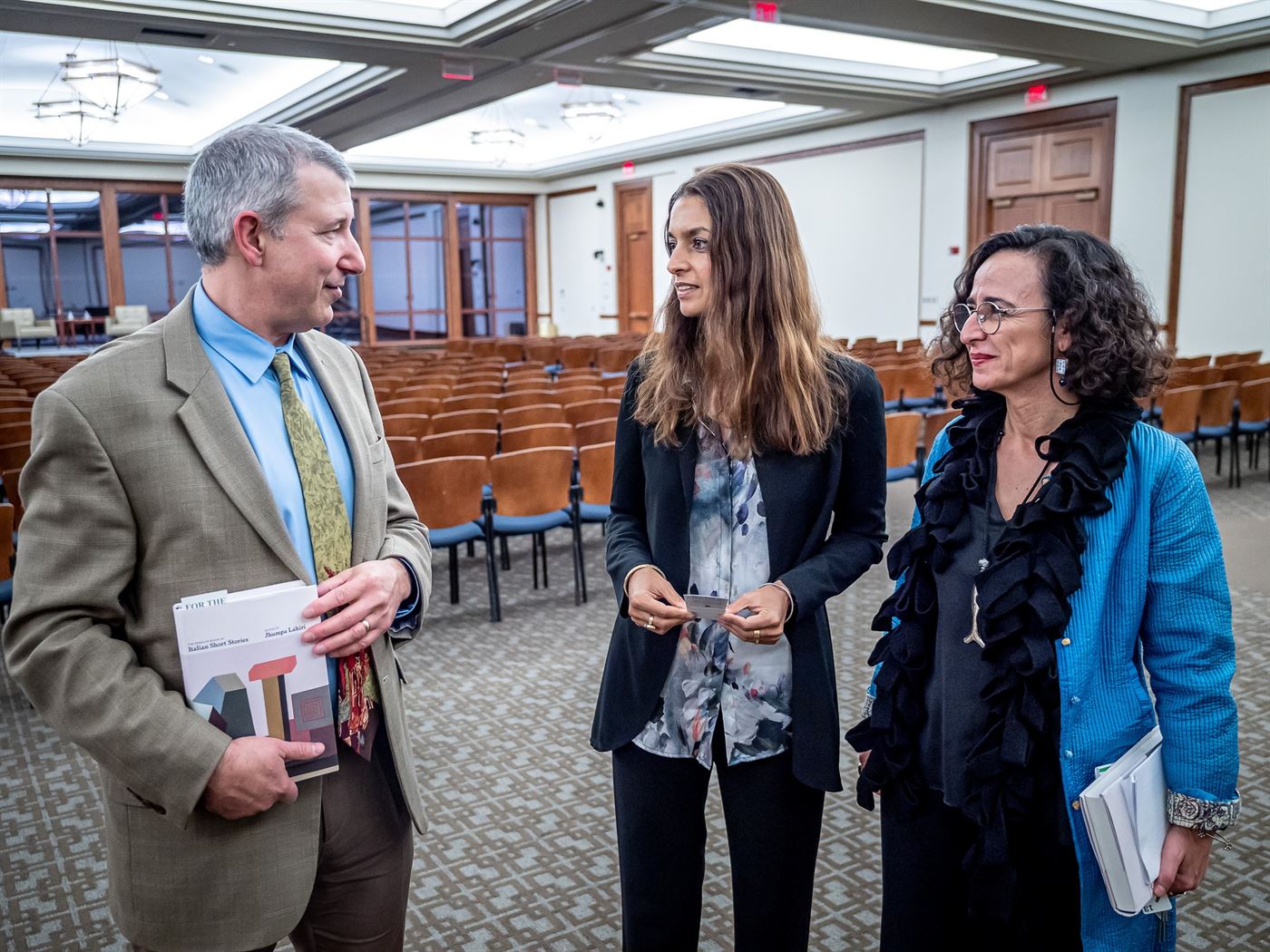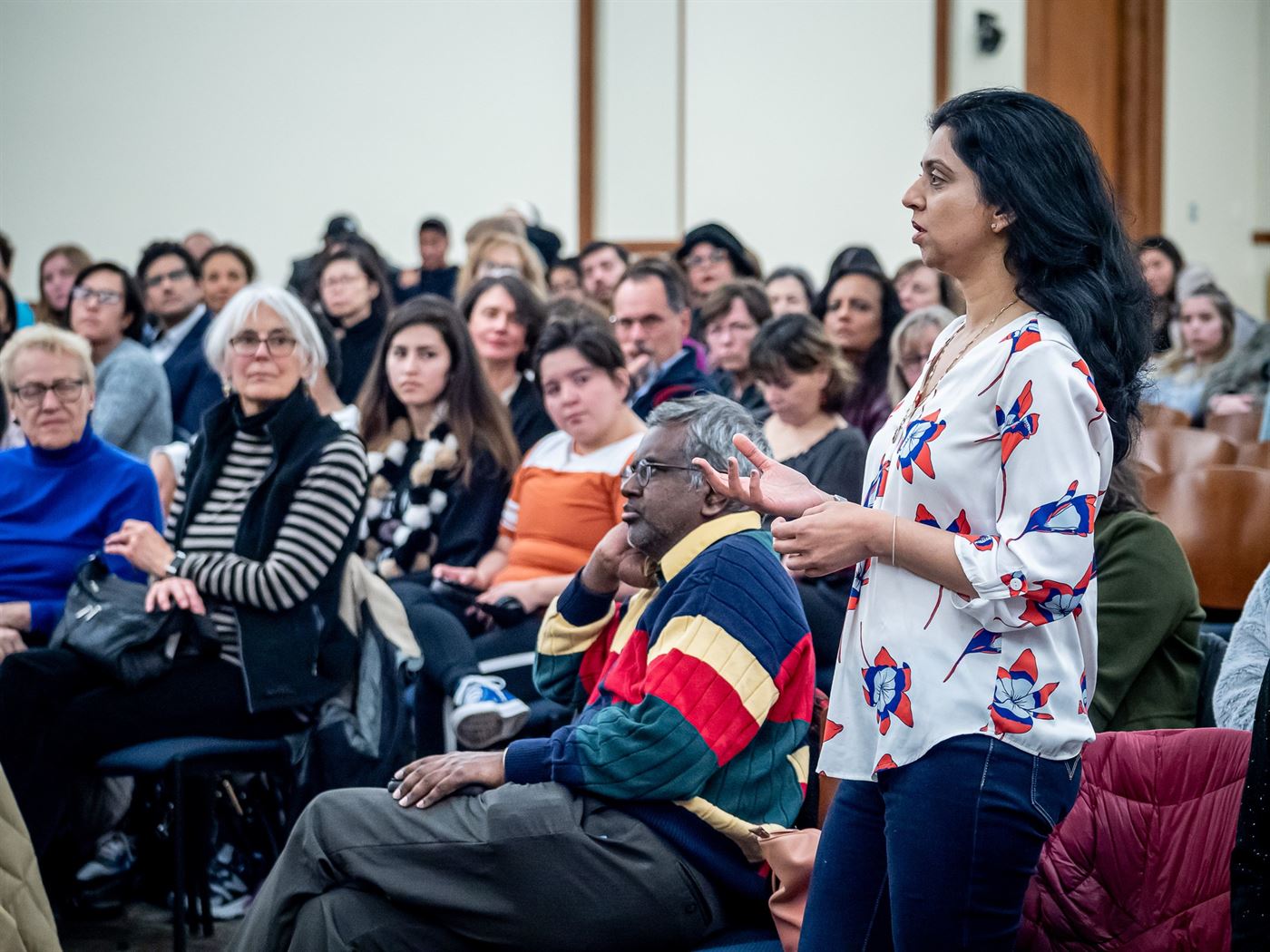Pulitzer-prize-winning author Jhumpa Lahiri gave Montclair State University a public lecture titled “Unbuilding Walls, Expanding Cultural Horizons: Jhumpa Lahiri on Translation.” The lecture took place Nov. 18, on the seventh floor of University Hall from 6:30 p.m. to 8:00 p.m.
Lahiri is the editor and partial translator of “The Penguin Book of Italian Short Stories,” an anthology of Italian short stories which was first published in March of 2019. This project came about through her desire to gather literary works from some of Italy’s greatest and forgotten authors and translate them into English. Lahiri sought the suggestions of her peers on which authors and short stories to read in Italian.
Peter Kingstone, dean of the College of Humanities and Social Sciences, gave opening remarks. The lecture was moderated by Teresa Fiore, the professor and Inserra chair of Italian and Italian American studies, who was responsible for inviting Lahiri to Montclair State.
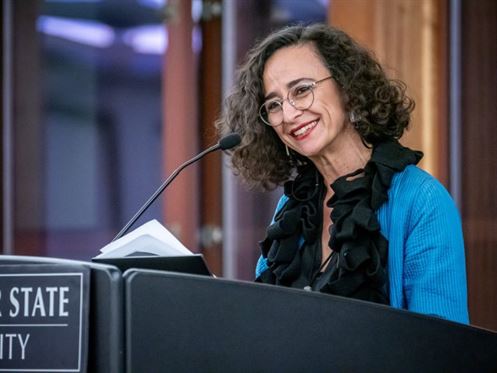
Dr. Teresa Fiore, Professor and Inserra Chair of Italian and Italian American Studies, began the event by expressing her excitement for the evening. Photo courtesy Mike Peters
Kingstone spoke on the art of translation.
“Translation is not simply about words, it is not simply about translating a book from one language into another, it is about communicating meanings across the great divides that separate us, whether [they are] geographic, cultural, gender or language,” Kingstone said.
Fiore began the lecture by asking Lahiri to speak about her journey with the Italian language.
“How does the transition from learning a language, to writing in it and eventually becoming a translator happen? Is this a chronological sequence?” Fiore asked.
Lahiri spoke on her history with language learning.
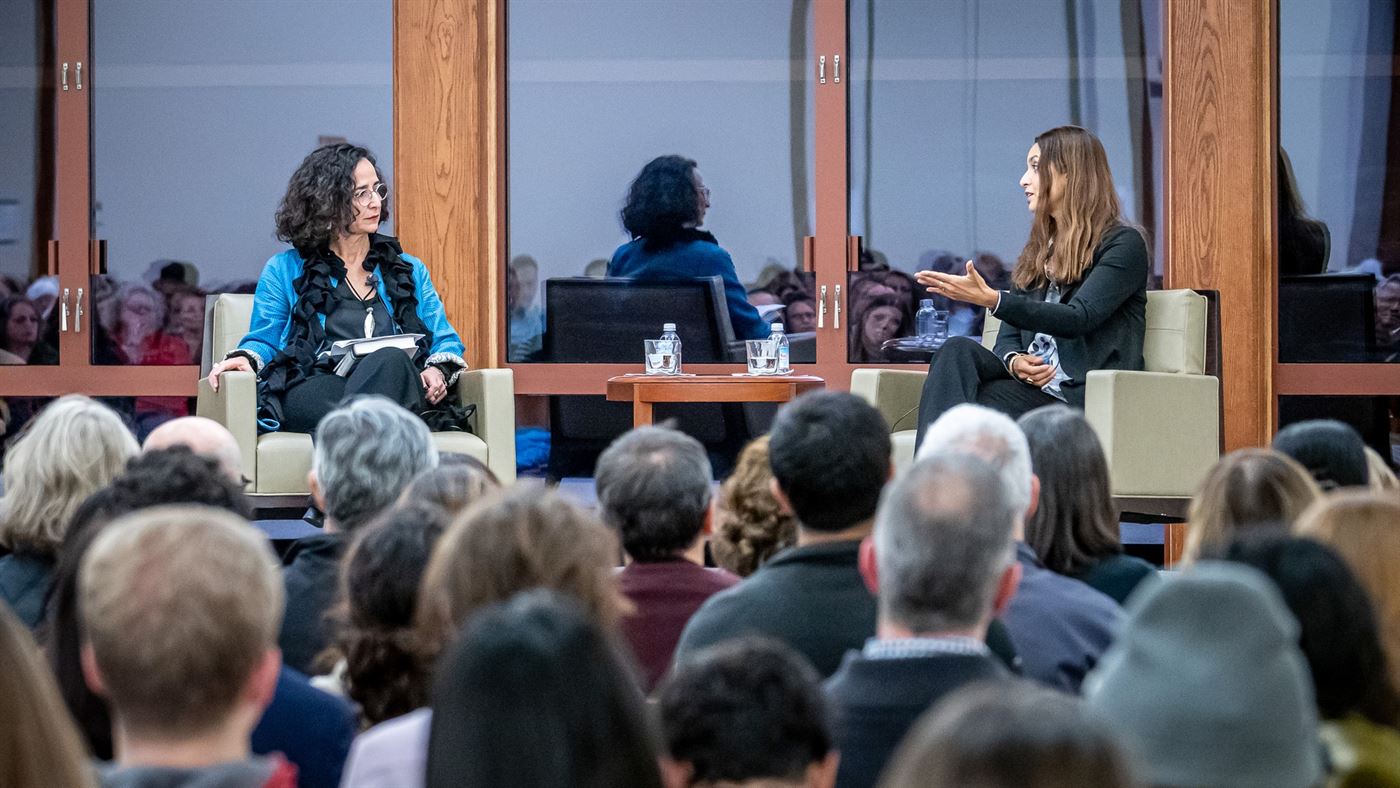
Dr. Teresa Fiore (left) and Jhumpa Lahiri (right) talked about the power of language and translation. Photo courtesy Mike Peters
“I realize that I come to translate Italian, as the last thing I do in the trajectory of learning Italian,” Lahiri said. “Before, I thought translation was going to be counterproductive to my efforts to write in Italian and now I no longer feel that, I feel that they are more in sync with one another and one complements the other.”
Natalie Yavorski, a Montclair State alumna and art major from the class of 2019, was at the event because of her passion for the Italian language.
“Art and language are a good combination because language and art are culture,” Yavorski said.
Yavorski mentioned the ways in which she has been able to combine her cultural interests with her professional life.
“I’m actually working at an Italian eyeglasses company, so that is a perfect combination of art and Italian. I am in the product creation department where we’re making the glasses and designing the glasses and I have so many Italian coworkers,” Yavorski said.
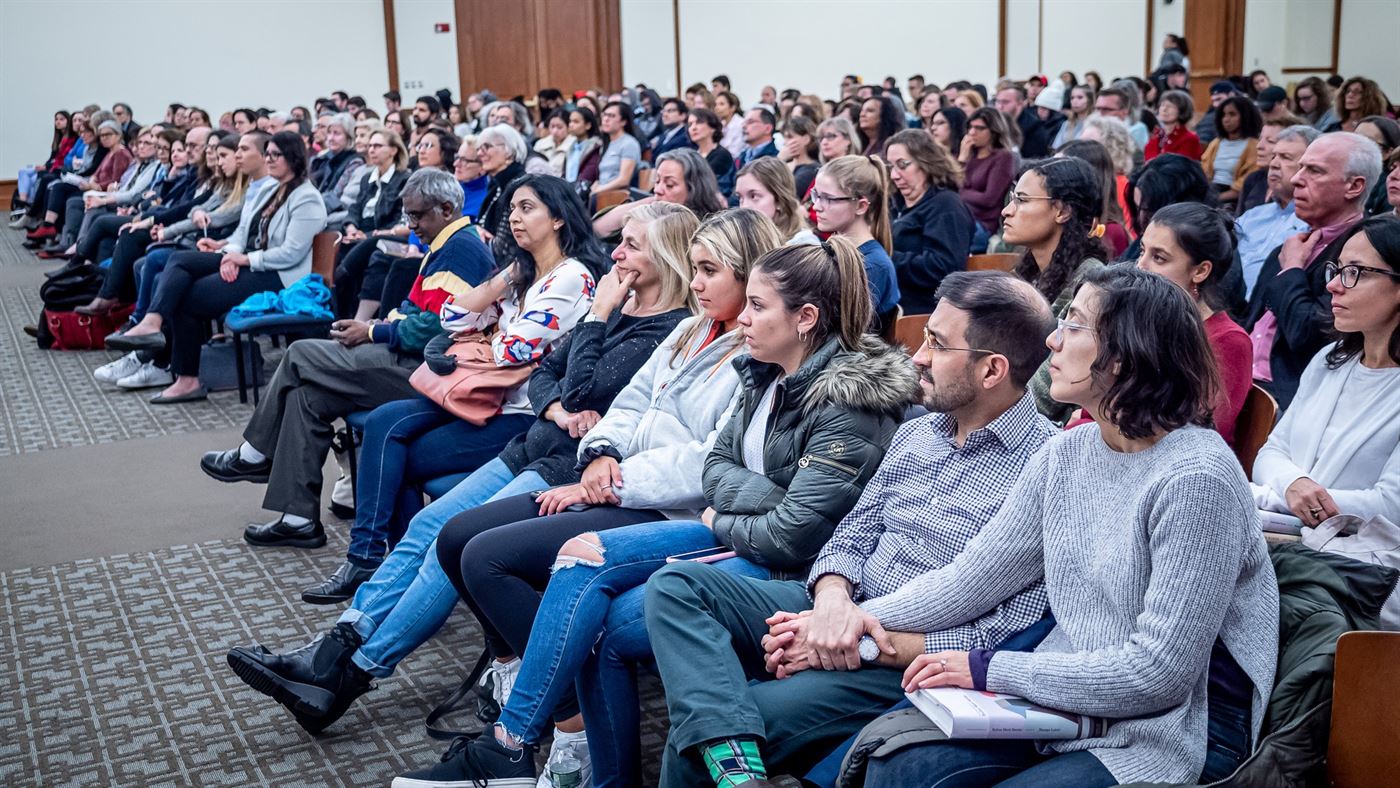
The audience was a mixture of students, academics and fans of Jhumpa Lahiri. Photo courtesy Mike Peters
Damien Brennan Piñero, senior religious studies major, was at the event for his interest in Italian short stories.
“I have actually taken a class in fairytales before, and part of those were actually Italian fairytales,” Piñero said.
Piñero agreed when Lahiri said that translation was an “aesthetic, ethical and political stance.” Piñero drew from what he witnessed as a Spanish speaker in Puerto Rico, where the English word “tape” is used instead of its Spanish translation, “cinta adhesiva.”
Piñero commented on the wide spread use of English in other languages.
“English has become like the lingua franca. English has taken over and is making other languages incorporate English into their language,” Piñero said. “Words are being forgotten, dialects and entire languages are becoming extinct.”
Before the evening came to a conclusion, in which audience members were able to ask questions, Lahiri spoke directly to the power of language learning.
“What is amazing about language learning is no one can stop you from learning any language on earth,” Lahiri said. “All have you have to do is decide to learn it…and you can go as deep as you want, you can devote your whole life to it and no one is ever going to say ‘this is enough now, you stayed here enough [and] your visa is expired [so] you have to go now,’ no one can ever put up that wall.”

